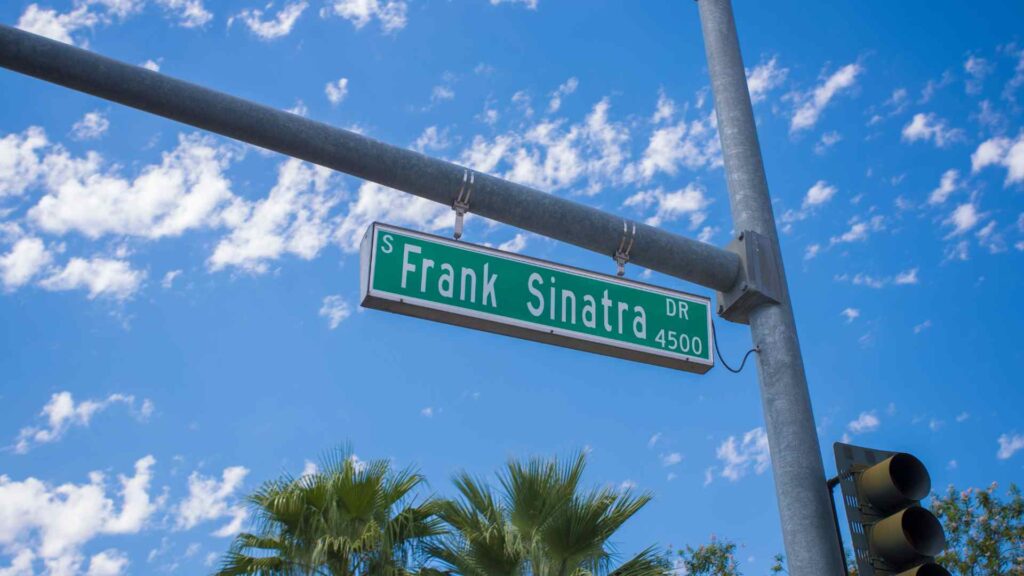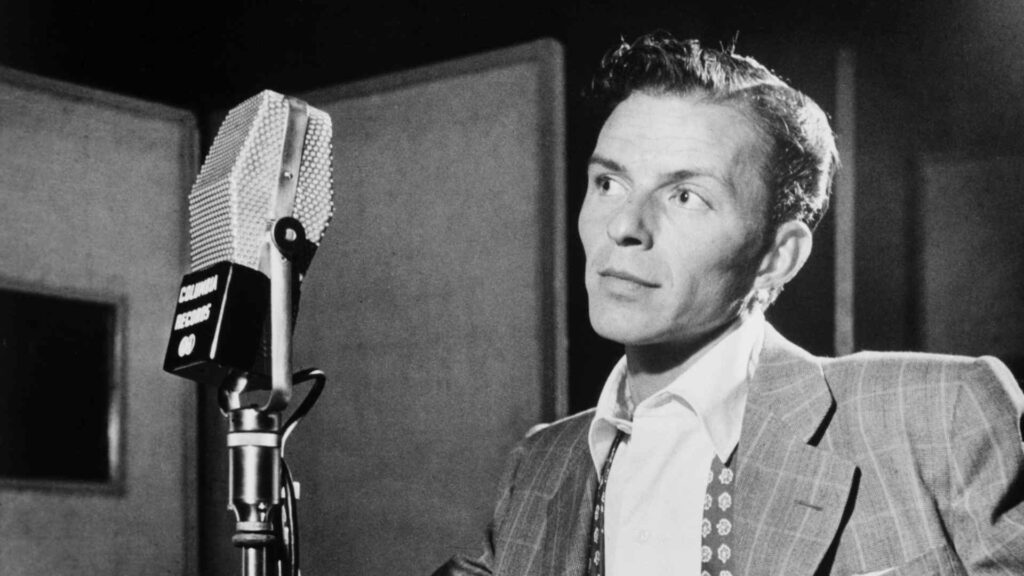Frank Sinatra, one of the most iconic figures in music history, was known by many nicknames that reflected different facets of his personality, talent, and influence.
These monikers provide insights into his life, legacy, and the way he was perceived by those who knew him best. Let’s dive into the stories behind each nickname.
The Chairman of the Board
Background
This is perhaps one of Frank Sinatra’s most well-known nicknames. It symbolizes not just his dominance in the entertainment industry but his leadership and authority over his career and business ventures.
Meaning and Significance
The nickname originated in the 1950s when Sinatra was one of the founding members of Reprise Records.
Unlike other artists of his era, Sinatra wanted creative control over his music, and this independence earned him the nickname “The Chairman of the Board.”
It reflected his decision-making power and executive role, positioning him as an industry leader rather than just a performer.
Cultural Impact
The nickname has since become synonymous with control, confidence, and mastery in one’s field.
When people refer to someone as “The Chairman,” it often implies that they are at the top of their game, just as Sinatra was.

Ol’ Blue Eyes
Background
“Ol’ Blue Eyes” speaks directly to one of Sinatra’s most captivating physical features—his piercing blue eyes. This nickname encapsulated his charm, which often left audiences mesmerized.
Meaning and Significance
Beyond just describing his eye color, the nickname symbolizes the romantic and alluring image Sinatra cultivated throughout his career. His blue eyes became an iconic part of his identity, and many of his fans associated his expressive, soulful singing with the intense gaze that accompanied it.
Legacy and Influence
The moniker is still widely recognized today and frequently used in popular culture.
It evokes not only the physical image of Sinatra but also the emotion and charisma he conveyed through his performances. Many contemporary artists who try to emulate Sinatra’s style often draw comparisons to “Ol’ Blue Eyes.”
The Voice
Background
Sinatra’s talent was unmistakable, and his vocal abilities were so remarkable that he earned the simple but profound nickname “The Voice.” This moniker emphasized the impact his singing had on audiences worldwide.
Significance
Sinatra’s voice was more than just a musical instrument; it was a way of connecting with people. His smooth, emotive delivery and unparalleled phrasing allowed him to make each song feel deeply personal. The nickname was a tribute to his skill as a vocalist and his ability to evoke emotion.
Influence on Music
“The Voice” became synonymous with excellence in singing, setting a benchmark for future crooners and vocalists.
Many aspiring artists aimed to possess the same kind of voice that could touch hearts the way Sinatra’s did. To this day, “The Voice” serves as a reminder of his mastery and dominance in vocal performance.

Frankie
Background
Simple and endearing, “Frankie” was a nickname used by close friends, family, and fans during the early days of Sinatra’s career. It emphasized a sense of intimacy and relatability, distinguishing him from the larger-than-life persona he later developed.
Meaning and Use
In the 1940s, as Sinatra rose to fame, “Frankie” was used by fans who felt a personal connection to the young, handsome crooner they saw on stage. It reinforced the idea of Sinatra as the “boy next door,” an image he often played into during his early years.
Cultural and Personal Impact
As his career evolved, “Frankie” remained a nostalgic reminder of his early days. Those who knew him before his rise to mega-stardom continued using the nickname, showing a personal bond with the man behind the legend. It’s a term of endearment that paints Sinatra as approachable and genuine, unlike the more formal and grand nicknames that came later.
Swoonatra
Background
A playful take on Sinatra’s surname, “Swoonatra” was coined in response to the effect he had on his female fans. During the height of his popularity in the 1940s, his performances often led to swooning crowds of young women, captivated by his voice and charisma.
Meaning and Public Perception
This nickname highlighted the intense admiration and attraction he inspired. The term became popular among journalists and fans alike, capturing the hysteria that surrounded Sinatra during his rise as a teen idol. It emphasized his status as a heartthrob and cultural phenomenon.
Long-Lasting Legacy
“Swoonatra” became a testament to the magnetic charm Sinatra held over audiences. It’s a reminder of a time when he was the ultimate symbol of youthful romance and excitement, setting a standard for future pop icons who would experience similar fan frenzy.

The Sultan of Swoon
Background
Similar to “Swoonatra,” this nickname was used to describe Sinatra’s effect on his fans, particularly the way he made them swoon with his performances. However, this version added an element of grandeur and regality.
Symbolism and Interpretation
By calling him “The Sultan of Swoon,” fans and critics elevated Sinatra’s charm to a royal status, suggesting that he was the reigning figure of romantic ballads. It was a playful and affectionate way of acknowledging his power over the audience.
Enduring Image
The nickname stands as a reminder of Sinatra’s peak popularity and the adulation he received during the height of his career. It also serves as a contrast to his later image as a serious artist and industry mogul, reminding people of his early appeal as a charismatic performer.
La Voz
Background
This nickname, translating to “The Voice” in Spanish, shows the international impact Sinatra had. His music transcended language barriers, making him an icon not just in the United States but across the world.
Cultural Significance
Sinatra’s ability to connect with diverse audiences earned him admiration beyond English-speaking fans. “La Voz” represented the universal appeal of his music and the way his voice resonated with people regardless of their cultural background.
Global Influence
Even today, Sinatra’s music is celebrated worldwide, and “La Voz” remains a testament to his global influence. The nickname highlights his status as a truly international star who left an indelible mark on music lovers around the globe.
Dino’s Pal
Background
Sinatra’s close friendship with Dean Martin was legendary. This nickname reflected their camaraderie, as the two were often seen together on and off stage, famously forming part of the Rat Pack.
Friendship and Collaboration
Sinatra and Martin’s partnership was one of mutual respect and admiration. They shared the stage countless times, and their humor, chemistry, and collaborative spirit became iconic. “Dino’s Pal” was a nod to their strong bond, which was visible in their performances and personal lives.
Impact on Entertainment
Their friendship set a precedent for celebrity duos, and “Dino’s Pal” serves as a nostalgic reminder of an era when show business was defined by camaraderie and shared joy. The Rat Pack era is now seen as a golden age of entertainment, with Sinatra and Martin leading the charge.
Scarface
Background
Although not as widely known, “Scarface” was a nickname given to Sinatra early in his career due to a small facial scar. While it was not as glamorous as other monikers, it reflected the challenges he faced.
Personal Struggles and Perceptions
Sinatra’s scar came from a difficult birth, and while it was barely visible, it served as a metaphor for his tenacity and resilience. “Scarface” showed that Sinatra’s rise to fame wasn’t just about glamour but also overcoming personal adversities.
Symbolism
The nickname symbolizes the strength and perseverance that characterized Sinatra’s journey. Though he was often seen as polished and sophisticated, “Scarface” reminds fans of the real, sometimes gritty struggles he encountered along the way.
FAQs About Frank Sinatra’s Nicknames
What is Frank Sinatra’s most famous nickname?
His most famous nickname is “Ol’ Blue Eyes,” highlighting his captivating eyes and his charm.
Why was Frank Sinatra called The Chairman of the Board?
He earned this title because of his executive role at Reprise Records and his leadership in the entertainment industry.
What does Swoonatra mean?
“Swoonatra” is a playful nickname referring to the way his fans, especially young women, swooned over him during his performances.
Was Frank Sinatra known as La Voz?
Yes, “La Voz” is the Spanish version of “The Voice,” showing his international influence and popularity.
Why did people call Sinatra The Voice?
He was called “The Voice” because of his exceptional vocal talent and the emotional impact of his performances.
What was the significance of Dino’s Pal?
“Dino’s Pal” reflected his close friendship with Dean Martin, symbolizing their bond as part of the legendary Rat Pack.
